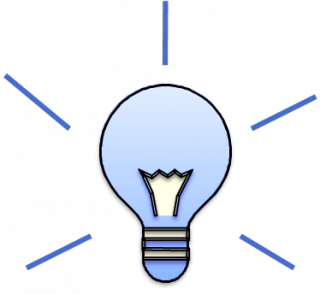Creativity
You May Not Persist Long Enough in Creative Tasks
More effort generating creative ideas is generally rewarded.
Posted July 29, 2015

I have the opportunity to work with groups who are trying to develop creative solutions to problems. One thing I have noticed is that groups often try to end the task of generating new potential solutions fairly quickly. After they have generated a couple of good ideas, they want to move on to evaluating those ideas and planning a way to execute those ideas.
An assumption of this desire to quite early is that an investment of additional time and effort spent generating ideas would not really pay off. An observation like this is interesting, but is there a general trend to devalue effort put into creative tasks?
This question was addressed in a paper by Brian Lucas and Loran Nordgren in the August, 2015 issue of the Journal of Personality and Social Psychology.
These researchers set up a clever method for assessing how much people value additional effort on a creative task. In each study, participants performed a creative task for a short period of time (between 2 and 10 minutes depending on the task). Then, they were asked how many new ideas they were likely to generate in another period of that length. After that, they continued the task for that period. The researchers compared the prediction of success with actual performance.
In the first study, participants spent 10 minutes generating ideas for novel things to eat and drink on Thanksgiving. On average, they generated about 22 ideas in that period. Then, they predicted how many more ideas they would generate in another 10 minutes. They predicted they would generate about another 10 ideas, but in fact they generated about 15 new ideas. A separate group rated the overall creativity of these ideas. The ideas generated in the first and second periods were about equally creative. So, it wasn’t the case that the first ideas people came up with were the best ones.
Another study varied the degree of creativity required in the task. Some tasks were fairly highly creative (like coming up with unusual uses for a cardboard box or generating advertising slogans). Other tasks were less creative like doing word searches or math problems. For both kinds of tasks, people predicted that additional work after an initial period would yield fewer ideas (or correct solutions) than they were actually able to generate. However, people’s predictions were much worse for high-creativity tasks than for low-creativity tasks.
Why does this happen?
Another study explored whether fluency affects people’s predictions. Basically, when you generate creative solutions to problems, you spend a lot of time generating lousy ideas and then suddenly come up with a good one. Because you don’t get a clear sense that you are steadily moving toward a solution, it can be hard to feel like more effort will lead to additional good solutions.
To test this possibility, one group of participants did the Remote Associates Test (RAT), which is often used as a test of creativity. In the RAT, you get three words (like HOME SEA BED) and you have to find another word that goes with all three (in this case SICK). A second group did math problems, which were not expected to require much creativity.
Participants did their assigned task (either the RAT or math problems) for 4 minutes. Then, they were asked to predict how many more problems they would solve in an additional 4 minutes. They were also asked to rate how much difficulty they had coming up with solutions in the first 4 minutes. As in the previous studies, participants underestimated how many RAT problems they would solve in the second session (though interestingly, participants doing math problems did not underestimate how many they would solve in the second session). Of interest, the more people reported that they found it hard to come up with solutions in the RAT, the more that they underestimated how well they would do in the second part of the task.
Finally, it would be easy to argue from this first set of studies that the big problem is that the people in these studies don’t really know much about creating solutions in the domains in which they are being tested. To explore this possibility further, the researchers tested participants at an improve conference. The task was to generate humorous endings to an improve setup. The participants had a lot of expertise doing. Even this group underestimated the value of additional work after an initial few minutes generating ideas. Their predictions were not as low compared to actual performance as was seen in some of the other tasks, but the basis result held up for these expert participants.
The findings from these studies suggest that people generating creative ideas often don’t work long enough at the task of coming up with possibilities. In general, individuals and groups would be better-served by spending more time coming up with ideas before starting to evaluate and implement those ideas. Even experts seem to underestimate the value of additional effort when generating ideas.
This research also suggests why most of the people we think of as being highly creative are hard workers. It turns out that spending more time on creative pursuits is likely to lead to better outcomes in the long-run than going with the first good idea that emerges. Persistence pays off.
Follow me on Twitter.
And on Facebook and on Google+.
Check out my new book Smart Change.
And my books Smart Thinking and Habits of Leadership
Listen to my radio show on KUT radio in Austin Two Guys on Your Head and follow 2GoYH on Twitter and on Facebook.




